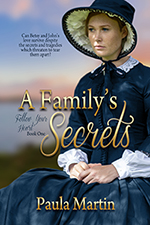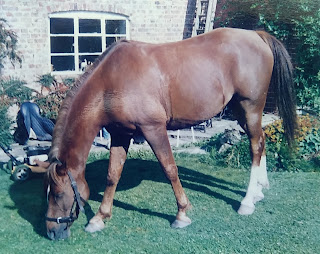https://www.bookswelove.com/donaldson-yarmey-joan/
https://www.audible.ca/pd/Romancing-the-Klondike-Yukon-Audiobook/B09Y62PLWV?ref=a_series_Ca_c10_lProduct_1_3&pf_rd_p=e54256e9-89bd-44c1-980b-adcad688db4e&pf_rd_r=Q9TGZH9B27KBHZP9Z7XY
https://www.bookswelove.com/donaldson-yarmey-joan/
In the late 1930s my father, Oliver
Donaldson, and his brothers, Gilbert and Albert, made their living by panning
for gold on two gold claims on the Salmon River, now called the Salmo River, in
southern British Columbia. In 1980, Dad, my Mom, my husband Mike, our five
children, and I went on a holiday to the Salmo River and the site of the former
claims. We found the bottom two rows of logs, all that was left of one of the
cabins they had lived in and the second cabin, which was still standing, on the
other side of the river.
Under Dad’s direction we all panned the
river. The children were quite excited at finding gold to take home. We toured
the area seeing where Dad and his brothers had walked into town to sell their
gold and buy some staples and where they had hunted for deer and picked apples
to live on. After the trip, Mike and I vowed that someday we would return.
In the spring of 1992, Mike, and I found
ourselves preparing for a death and a wedding in our family. At the beginning
of that year, Mike’s oldest sister Sallian had been diagnosed with terminal
pancreatic cancer and one of our sons and his fiancé had set a wedding date.
For almost five months we visited Sallian, first at home and then in the
hospital. I cannot describe the anger, sorrow, and frustration I felt as I
watched what the disease was doing to her. She lost weight and the ability to
look after herself. During her final month she was hardly more than a skeleton.
For those same five months I experienced
a mother’s delight and happiness as I helped with the marriage plans. I made
the cake, watched my son pick out his tuxedo, found my dress, arranged for my
hairdo, and planned a mixed shower of friends and family.
Balancing my life while dealing with the
opposing emotions was truly hard.
Sallian died on May 25 at age 54. On
June 27 over 300 people attended my son's wedding and partied well into the
night.
Like most people it took the death of
someone close to me to make me realize how important really living is. I
knew Mike and I had to do something adventurous with our lives, something out
of the ordinary.
That summer of 1992 we decided to leave
life as we knew it and get a gold claim. Mike found books on gold panning and
spent many hours talking from my Dad. He bought new rectangle-shaped, plastic
gold pans, vials, and snuffer bottles. I phoned the Minerals Branch of the B.C.
government and they sent us a map showing the separate gold claim regions of
southern B.C. We set our sights on the Salmo River area.
For our home we found a used twenty-four
foot holiday trailer that had a floor plan we liked. Coincidentally, the people
we bought it from had two gold claims in the Yukon. We sold our house, quit our
jobs and on September 1, we began our journey west. Mike was pulling the
holiday trailer with our half-ton truck, which had our all-terrain vehicle in
the back. I was in our smaller four-wheel drive pulling a utility trailer with
our prospecting equipment and other paraphernalia we thought we might need.
It took two days of slow travel to reach
the Selkirk Motel and Campsite on the side of the highway at Erie, about three
kilometres west of the town of Salmo. We set up camp, hooking up to the water
and power. We had until freeze-up to find a claim.
Next morning we were up early and off to
the Gold Commissioner’s Office in Nelson. There were no changes in the maps we
had been sent. Since there was no need for both of us to get a Gold Miner’s
Certificate, Mike bought one, two red metal tags, and a topographical map, and
was given his recording form. We were hopeful as we headed to the Salmo River.
Although the open spots we were looking
for were on a different section of the river from my fathers, we didn’t mind.
Getting a claim on the Salmo was what mattered. As we neared one location we
slowed down and began watching the bush for a post with a tag on it that would
show the boundary of the neighbouring claim. When we found it we checked the
number on the tag with the number on the map and it matched. We went down the
steep bank, holding onto small trees and bushes to keep from sliding. Mike ran
a few pans from the downstream side of a large rock, one of the places Dad had
told us that gold collects. Others were on the inside of curve on rivers and in
the roots of trees beside the water. However, at this part of the river there
wasn’t any gold to be found.
We drove to another site further
downstream. The bank was a sheer drop to the river. Discouraged, we returned to
the campsite.
The next day we went to find Dad’s
former claim. We drove down to the border crossing at Nelway and turned right
just before the Custom’s office. We travelled beside ranches and alongside the
Pend D’Oreille River. After we crossed the bridge over the mouth of the Salmo
River we turned right onto a narrow, gravel road. It was steep in places and
there were many sharp curves just as we remembered. We drove over Wallach Creek
but after that we couldn’t find anything else that looked familiar. It had only
been twelve years since we had been there. When we went in 1980, it had been
forty years since Dad had lived there, but he found it. Our memories were not
quite as good as his.
With a growing sense of urgency we spent
days checking Rest Creek, Erie River, Limpid Creek and many others with little
success.
The Salmo River kept calling us and we
returned to the bridge and mouth of the river. Mike tried for gold. No luck. We
drove along the south side of the river where we found the second cabin Dad had
shown us. There was a truck and camper in the yard. We stopped to talk to the
man there and learned that four people, three men and a woman, now had my Dad’s
and my uncle’s claims. He told us they were the two best claims on the river.
I
explained where the cabin had been on the north side and he told us how to
reach it. This time we found the trail to the river and came upon the remains
of the log cabin. Just past it we stood on the bluff looking down on the river
as we had done twelve years earlier with my parents and our children. The
memories came flooding back: the walk to the river with each child carrying a
pie plate to use as a gold pan, finding gold only to discover that we had
nothing to put it in, one daughter coming up with the idea of sticking it to
bandages, camping near the river.
But we didn’t have time to linger. We
were working against the weather. Mike went over our maps of the Salmo River
again and this time noticed that there is a small portion on the curve of the
river that was open near the old cabin. Because the claims on either side
formed rectangles it was missed by both of them. We found the posts of those
claims then hurried to Nelson to confirm that the piece was available. It was.
There wasn’t time to stake it that night
so we had to wait until morning. We rose early, went out to the river and put
one of Mike’s red tags on the post of the claim to the east of ours. Mike took
a compass and orange flagging and we began to mark off the distance, tying the
flagging to trees as we went. At the end of five hundred yards Mike cut a tree,
leaving a stump about three feet high. He squared off the top and I nailed up
our final tag with the information scratched by knife point onto it. The claim
was five hundred yards by five hundred yards and was called the Donaldson.
We hurried back to Nelson and handed in
the recording form. We were ecstatic. Not only had we located an area on the
same river as my father, but we actually had part of his old claim. We went to
the river and found a clearing for us to set up camp when we came back the next
spring. Mike took his gold pan and headed down to the water’s edge.
I followed and sat on a large rock. As I
watched the water flow sedately by, a deep sense of relaxation settled over me,
the first I had felt since the beginning of the year. It helped me begin to
deal with the fact that I had witnessed Death at work.
Sallian was the first one in either of
our immediate families to die. I had seen the tragedy of death strike my
friends but didn’t understand how devastating it could be until it happened to
me.
We
spent the winter in our holiday trailer in a campground in Vancouver and
returned to the claim in the spring. Our campsite was in the middle of tall
pine, birch, spruce, and cedar and I could just barely see the mountain tops to
the south. The mountains to the north were higher and made a lovely backdrop to
the trees. Each morning I walked through the bush to the river. I sat on a
large triangle-shaped rock and watched the water drift by. A partridge
sometimes drummed in the distance. Birds sang in the trees. I would take a deep
breath of the cool, fresh air. It was a good place to be.
We panned for gold, explored the area,
and generally enjoyed our freedom but soon our adventure was over and in the
fall we returned to the real world. We never did find much gold but then, for
me, it really wasn’t about the gold.
My mystery/romance novel, Gold Fever, is
loosely based on my gold claim experience.
.jpg)
.jpg)


















%20(427x640).jpg)
.jpg)




.jpg)








